
The Vibrant Shores of Almadies: A Coastal Gem in Dakar
Welcome to Almadies, the dazzling coastal neighbourhood situated on the westernmost point of Africa. Known for its stunning beaches, lively atmosphere, and rich cultural tapestry, Almadies is a must-visit destination for any traveller exploring Dakar. The neighbourhood offers a unique blend of modern amenities and traditional Senegalese charm, making it an ideal spot for both relaxation and adventure. Stroll along the picturesque coastline and take in the breathtaking views of the Atlantic Ocean. The beaches here are perfect for sunbathing, swimming, or enjoying a variety of water sports. For those looking to surf, Almadies boasts some of the best waves in Senegal. After a day by the sea, indulge in the local seafood cuisine at one of the many oceanfront restaurants. Freshly caught fish and seafood dishes are a staple here, often accompanied by vibrant local music. Almadies is not just about the beaches; it's also a cultural hotspot. Visit the nearby African Renaissance Monument, one of the tallest statues in Africa, offering panoramic views of Dakar. The neighbourhood is also home to a variety of art galleries, shops, and markets where you can find traditional crafts and souvenirs. The friendly locals and the welcoming atmosphere make exploring Almadies an unforgettable experience. Whether you're here to soak up the sun, dive into the local culture, or simply relax and unwind, Almadies offers something for everyone. Its unique blend of natural beauty, cultural richness, and modern comforts ensures that your visit will be both memorable and enriching.
Local tips in Almadies
- Visit Almadies during the dry season (November to May) for the best weather and surfing conditions.
- Try the local seafood at oceanfront restaurants, especially grilled fish and seafood platters.
- Bring cash, as some local markets and smaller shops may not accept credit cards.
- Don't miss the African Renaissance Monument for panoramic views and photo opportunities.
- Wear comfortable walking shoes for exploring the neighbourhood’s markets and cultural sites.
The Vibrant Shores of Almadies: A Coastal Gem in Dakar
Welcome to Almadies, the dazzling coastal neighbourhood situated on the westernmost point of Africa. Known for its stunning beaches, lively atmosphere, and rich cultural tapestry, Almadies is a must-visit destination for any traveller exploring Dakar. The neighbourhood offers a unique blend of modern amenities and traditional Senegalese charm, making it an ideal spot for both relaxation and adventure. Stroll along the picturesque coastline and take in the breathtaking views of the Atlantic Ocean. The beaches here are perfect for sunbathing, swimming, or enjoying a variety of water sports. For those looking to surf, Almadies boasts some of the best waves in Senegal. After a day by the sea, indulge in the local seafood cuisine at one of the many oceanfront restaurants. Freshly caught fish and seafood dishes are a staple here, often accompanied by vibrant local music. Almadies is not just about the beaches; it's also a cultural hotspot. Visit the nearby African Renaissance Monument, one of the tallest statues in Africa, offering panoramic views of Dakar. The neighbourhood is also home to a variety of art galleries, shops, and markets where you can find traditional crafts and souvenirs. The friendly locals and the welcoming atmosphere make exploring Almadies an unforgettable experience. Whether you're here to soak up the sun, dive into the local culture, or simply relax and unwind, Almadies offers something for everyone. Its unique blend of natural beauty, cultural richness, and modern comforts ensures that your visit will be both memorable and enriching.
Iconic landmarks you can’t miss
African Renaissance Monument
Explore the African Renaissance Monument in Dakar, a monumental symbol of pride and unity, offering stunning views and rich cultural significance.
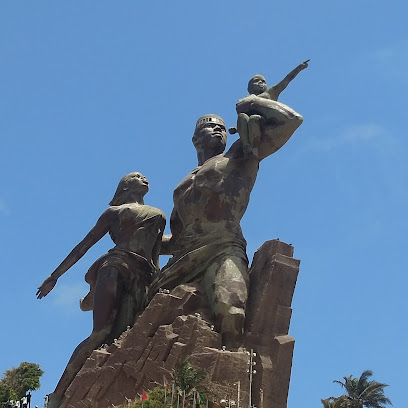
King Fahd Palace Hôtel
Discover luxury and vibrant entertainment at the King Fahd Palace Hôtel in Dakar, where elegance meets the heart of Senegalese culture.
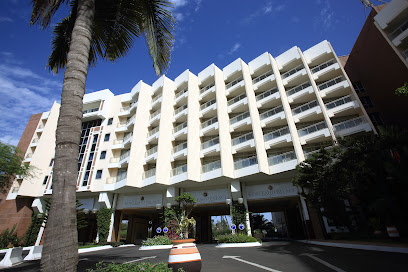
Place du Souvenir Africain
Explore Place du Souvenir Africain in Dakar, a vibrant plaza celebrating African heritage through stunning monuments and engaging cultural experiences.
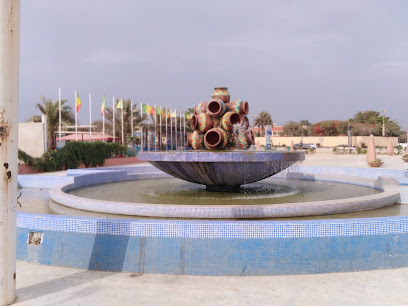
House of Slaves
Explore the House of Slaves on Gorée Island, a UNESCO World Heritage Site that reveals the poignant history of the transatlantic slave trade.

Phare des Mamelles
Experience the best of Dakar at Phare des Mamelles, where exquisite dining meets stunning views and vibrant nightlife.
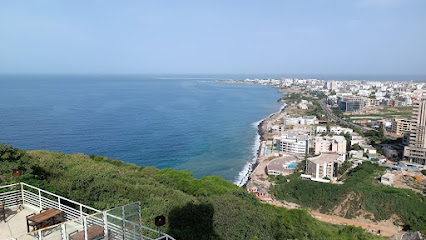
Monument du Millénaire
Discover the Monument du Millénaire in Dakar, a stunning historical landmark celebrating Senegal's rich cultural heritage and history.
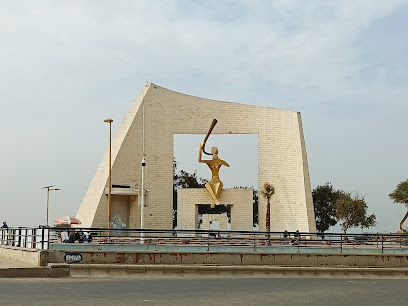
Loman Art House - Art Gallery
Discover the vibrant fusion of art and culture at Loman Art House, a must-visit gallery and café in Dakar, Senegal.
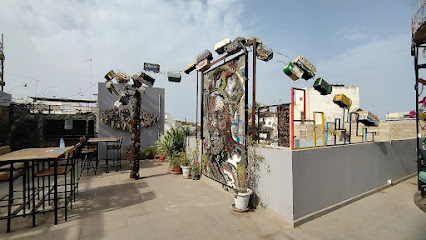
Mémorial Gorée-Almadies
Discover the poignant history and cultural significance of the Mémorial Gorée-Almadies, a must-visit monument in Dakar, Senegal.
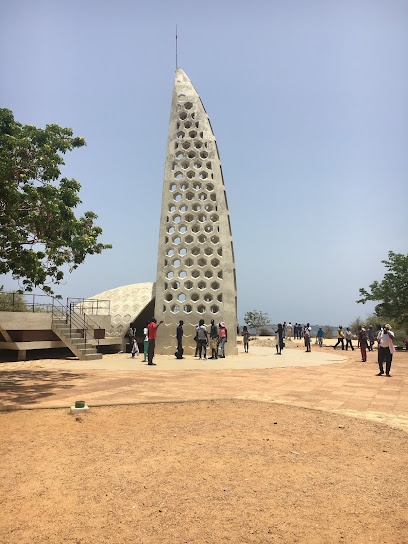
Obelisk Square
Discover the vibrant culture and historic significance of Obelisk Square, a must-visit landmark in the heart of Dakar, Senegal.
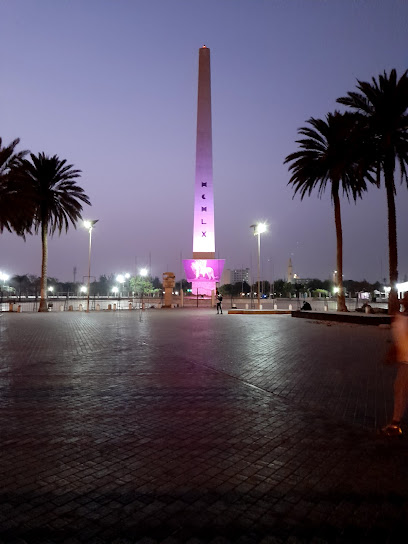
Village Des Arts
Discover the artistic heart of Dakar at Village Des Arts, where creativity and culture come to life in a vibrant community.
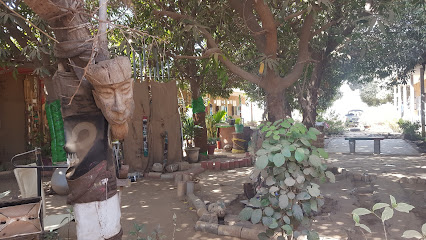
Plage Almadie Diendiene
Discover the tranquility of Plage Almadie Diendiene, a serene beach in Dakar with stunning sunsets and authentic local experiences.
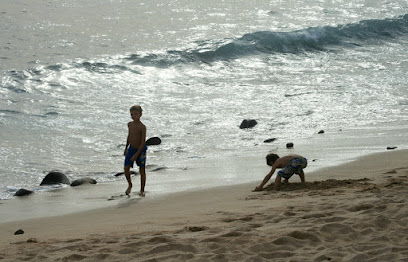
Phare des Mamelles de Dakar
Explore the stunning Phare des Mamelles Lighthouse in Dakar, a historical landmark with breathtaking ocean views and rich maritime heritage.
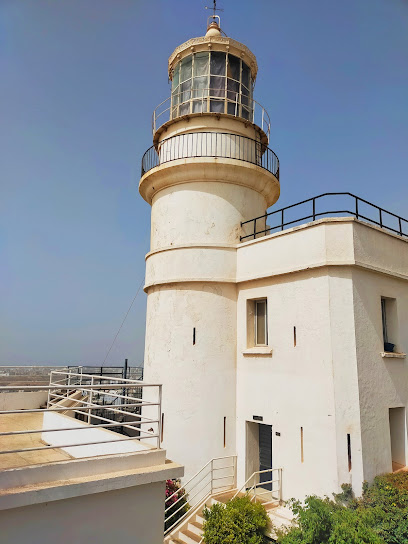
monuments de la renaissance
Discover the stunning Renaissance monuments of Dakar, where history, culture, and vibrant architecture unite in a remarkable travel experience.
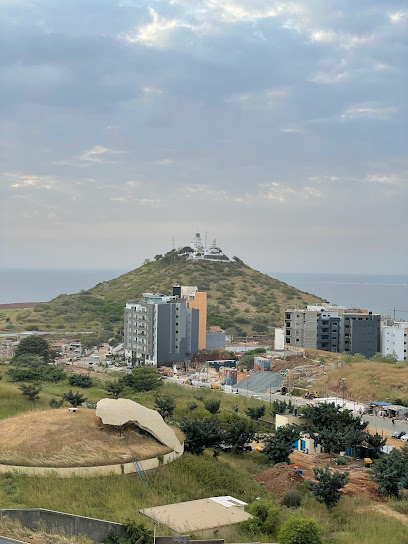
pointe des Almadies
Explore the captivating beauty of Pointe des Almadies, a rocky coastal paradise in Dakar, where stunning views and rich culture await every traveler.
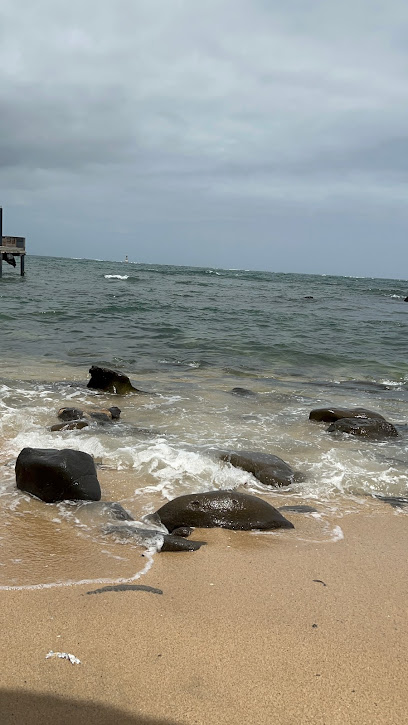
Rond point des Almadies
Discover the vibrant charm of Rond Point des Almadies, a scenic rest stop in Dakar, where local flavors and stunning coastal views await.

Unmissable attractions to see
The Museum of Black Civilisations
Explore the rich cultural heritage at the Museum of Black Civilisations in Dakar, celebrating the achievements of black communities worldwide.
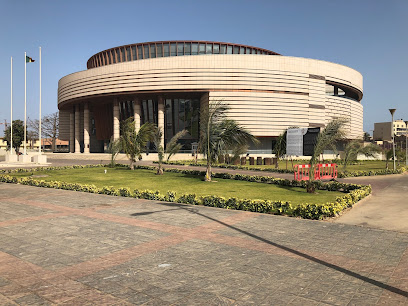
Senegalese Armed Forces Museum
Explore the military heritage of Senegal at the Senegalese Armed Forces Museum, a captivating tourist attraction in Dakar.
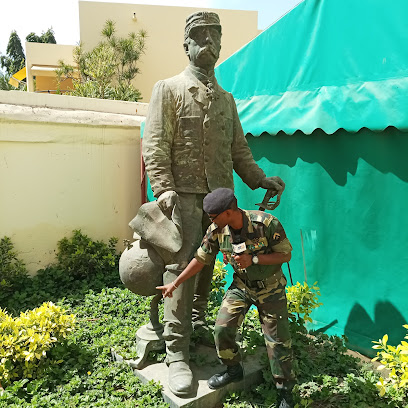
Essential places to dine
Chez Fatou
Savor authentic Senegalese cuisine at Chez Fatou in Dakar – where every dish tells a story!
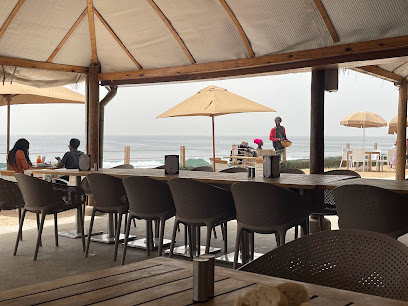
Restaurant La Pointe des Almadies
Discover exquisite seafood and vibrant ambiance at Restaurant La Pointe des Almadies in Dakar's scenic coastal region.
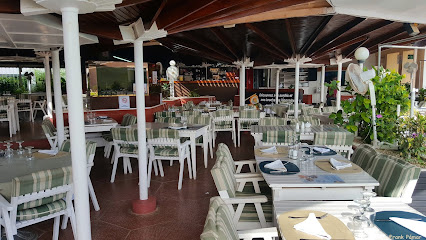
Restaurant Le N'Gor Pieds dans l'Eau
Experience exquisite seafood dining at Restaurant Le N'Gor Pieds dans l'Eau, where every meal comes with stunning ocean views.
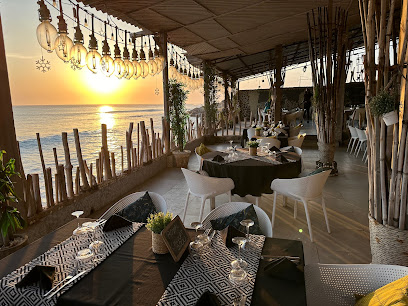
Noflaye Beach
Experience delightful Senegalese cuisine at Noflaye Beach, where every meal comes with breathtaking ocean views and vibrant local flavors.
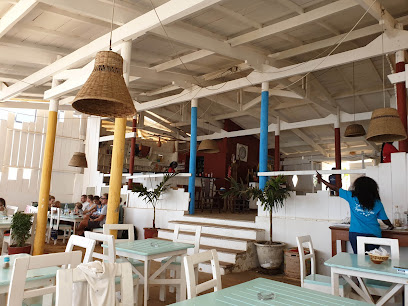
Le Cabanon Dakar
Experience authentic Senegalese cuisine with stunning ocean views at Le Cabanon Dakar, where culinary traditions meet modern dining.
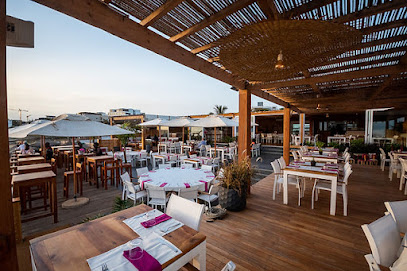
La Mer à Table
Experience exceptional seafood dining with stunning ocean views at La Mer à Table in Dakar's charming Les Almadies neighborhood.
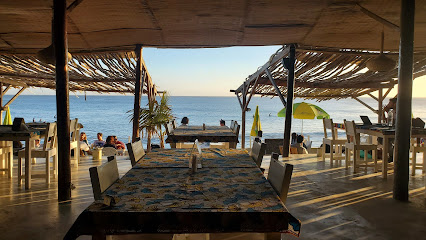
Restaurant Le Carré Dakar
Experience the best of Senegalese and international cuisine at Restaurant Le Carré Dakar – where flavor meets ambiance.
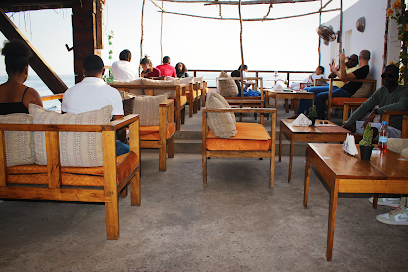
Restaurant Dionevar
Experience the vibrant tastes of Senegal at Restaurant Dionevar - where local flavors meet modern culinary artistry.
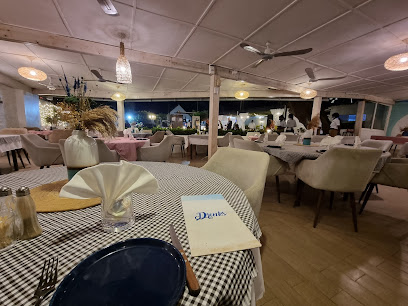
Restaurant Le Cocotier
Experience authentic Senegalese cuisine at Restaurant Le Cocotier in Ngor, Dakar—where fresh ingredients meet vibrant flavors.
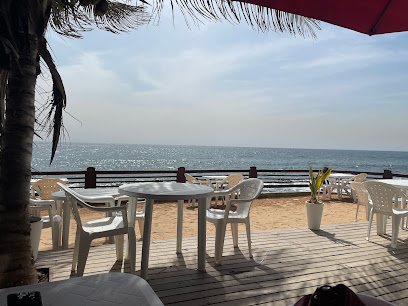
Le Jardin
Discover Le Jardin in Ngor, Dakar – where local flavors meet international cuisine in a serene garden setting.
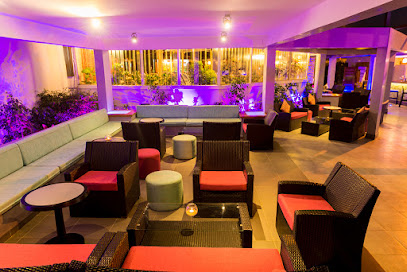
Markets, malls and hidden boutiques
CitySport
Discover CitySport in Dakar: Your ultimate destination for high-quality sporting goods and gear to enhance your adventure.
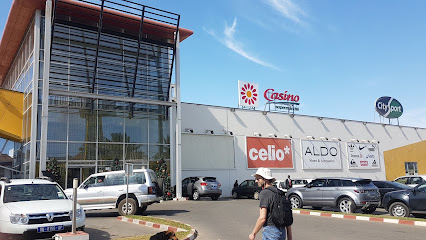
Atmosphère Décoration
Discover the vibrant artistry of Senegal at Atmosphère Décoration, your destination for unique home goods and handcrafted treasures in Dakar.
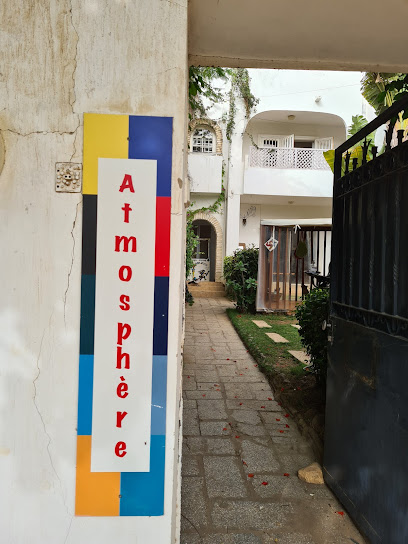
Nahyel - Boutique de Cadeaux Dakar
Explore Nahyel - Boutique de Cadeaux in Dakar for exquisite gifts and authentic Senegalese treasures that capture the essence of local craftsmanship.
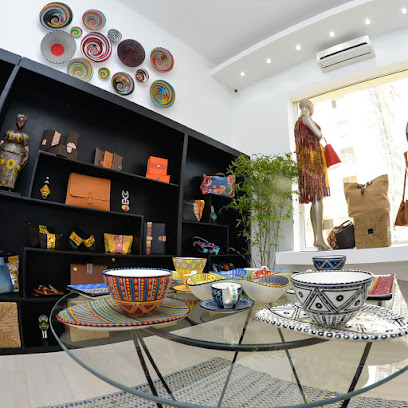
Ngor Almadies
Discover Ngor Almadies, a vibrant blend of education and commerce in the heart of Dakar, Senegal, where local culture thrives.
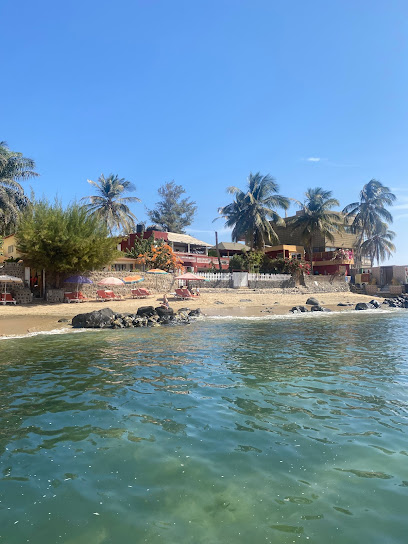
Celebrity Shop
Discover unique fashion and local craftsmanship at Celebrity Shop in Ngor, Dakar's premier boutique destination for stylish souvenirs and chic attire.
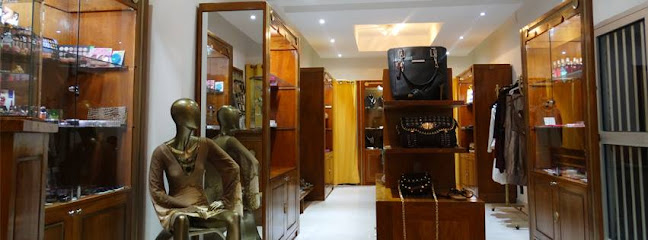
Imaara Concept Store
Explore the charm of Dakar at Imaara Concept Store, where unique handmade gifts and jewelry reflect the vibrant culture of Senegal.
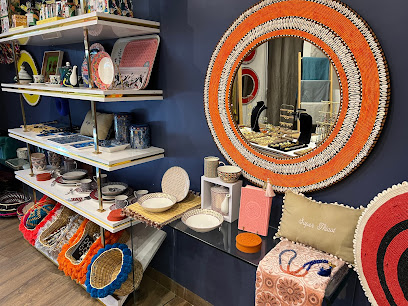
Upcyclers Dakar
Explore sustainable fashion at Upcyclers Dakar, where creativity meets eco-consciousness in every unique garment.
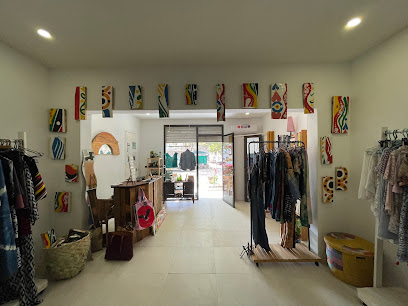
Arka Concept Store
Explore Arka Concept Store in Dakar for unique, handcrafted gifts that embody the spirit and culture of Senegal, perfect for every traveler.
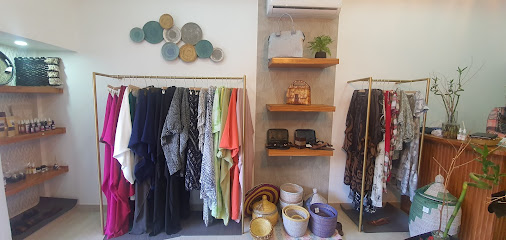
Minibap Almadies
Discover unique Senegalese crafts and fashion at Minibap Almadies, a must-visit store in Dakar's vibrant Almadies district.
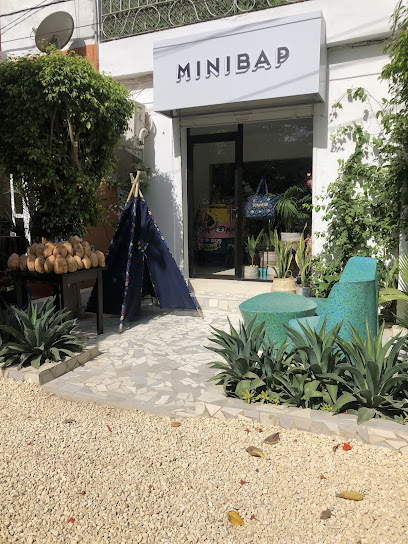
Magoma
Explore Magoma in Dakar's Almadies for unique women's clothing that blends contemporary fashion with traditional Senegalese style.
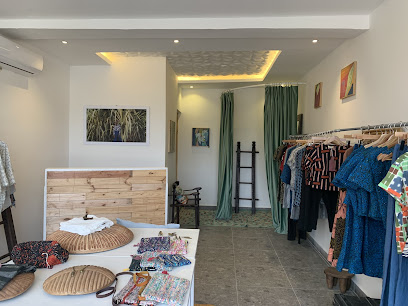
Essential bars & hidden hideouts
Cosmo Beach Club
Experience the vibrant atmosphere and stunning ocean views at Cosmo Beach Club, Dakar's premier lounge for relaxation and entertainment.
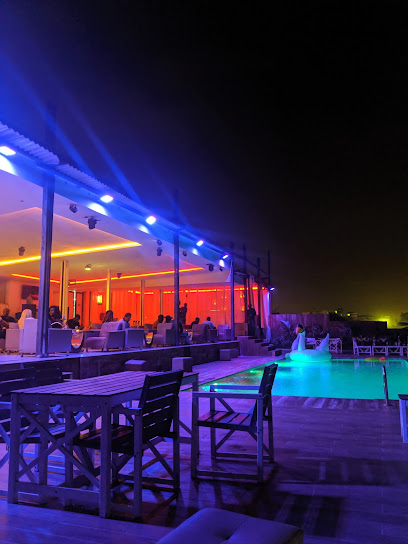
La Terrasse Soleil Café
Discover the vibrant flavors and dynamic atmosphere of La Terrasse Soleil Café in Dakar, where culinary delight meets lively entertainment.
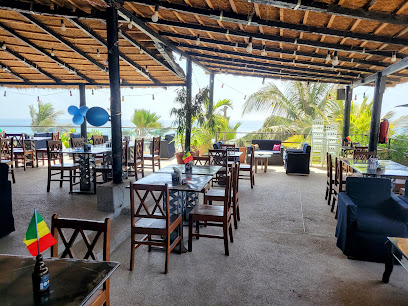
Kraken Pub
Experience the vibrant nightlife at Kraken Pub in Dakar, where refreshing drinks and lively entertainment create unforgettable memories.
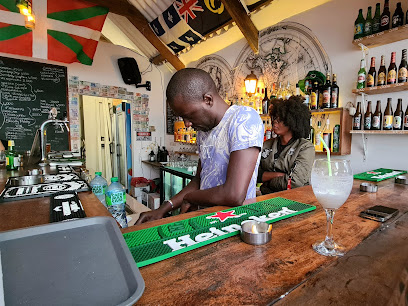
yokalounge
Experience the perfect blend of relaxation and vibrant nightlife at Yoka Lounge in Dakar, where every evening is a celebration of taste and ambiance.
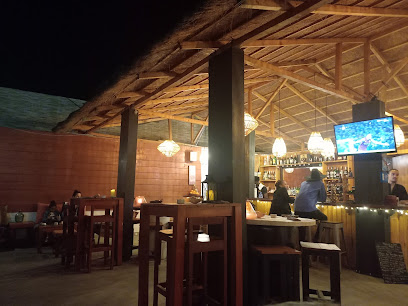
MONTECOSY
Discover Montecosy: A stylish lounge in Dakar offering a unique ambiance, delicious cuisine, and a vibrant social scene.
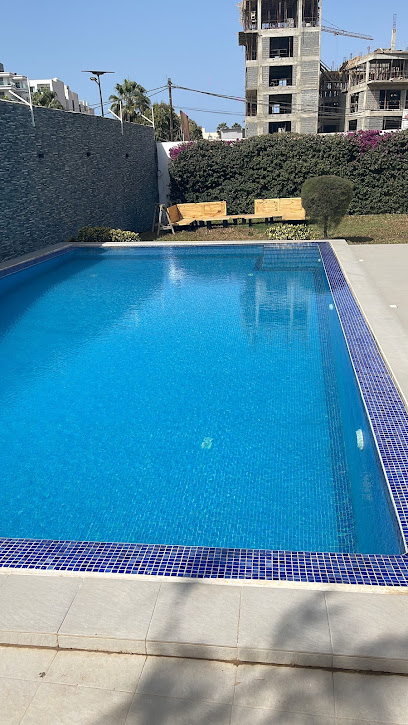
TRUST Lounge Dakar
Experience the vibrant nightlife of Dakar at TRUST Lounge, where stunning ocean views and exquisite cocktails await.
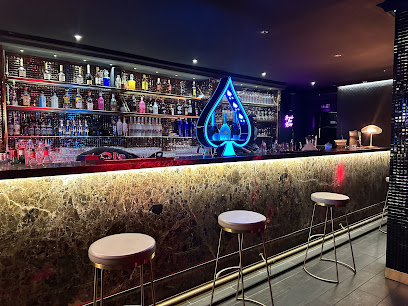
Cosmos beach
Experience the vibrant nightlife at Cosmos Beach, a lively bar in Dakar offering stunning ocean views and a taste of Senegalese culture.
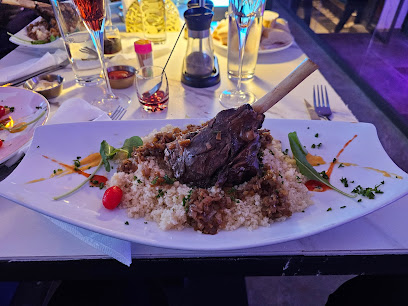
GOAT Dakar
Discover the vibrant nightlife at GOAT Dakar, a premier sports bar offering live sports, local drinks, and unforgettable experiences in the heart of Ngor.
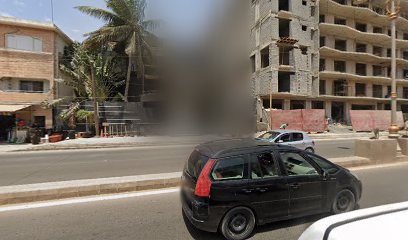
Aloha Dakar
Discover the vibrant nightlife at Aloha Dakar, a lively bar offering an unforgettable blend of local culture, refreshing drinks, and stunning ocean views.
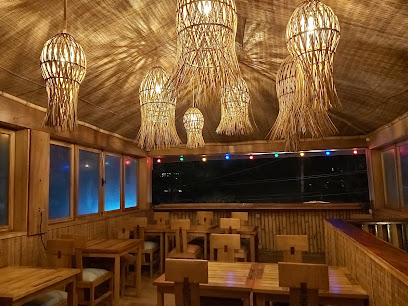
Chez Nakeyii
Experience the vibrant nightlife of Dakar at Chez Nakeyii, a lively bar offering delicious cocktails and local flavors in a welcoming atmosphere.
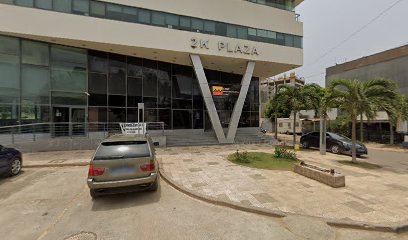
Local Phrases
-
- HelloSalut
[sa-lut] - GoodbyeBa ci kanam
[ba ci ka-nam] - YesWaaw
[waaw] - NoDéedéet
[dee-deet] - Please/You're welcomeNopp
[nopp] - Thank youJërëjëf
[je-re-jef] - Excuse me/SorryBaal ma
[baal ma] - How are you?Nanga def?
[nan-ga def?] - Fine. And you?Jamm. Nopp?
[jam nop?] - Do you speak English?Nopp, maangi Angalee?
[nopp, man-gi an-ga-lee?] - I don't understandYàlla ma nuy jël
[ya-la ma nu jell]
- HelloSalut
-
- I'd like to see the menu, pleaseMangui ko menu, nga def
[man-gi ko menu, nga def] - I don't eat meatDéedéet, maangi jëm
[dee-deet, man-gi jem] - Cheers!Santé!
[san-te] - I would like to pay, pleaseMangui ko def, nga def
[man-gi ko def, nga def]
- I'd like to see the menu, pleaseMangui ko menu, nga def
-
- Help!Nangu!
[nan-gu!] - Go away!Dafa neex!
[da-fa neex!] - Call the Police!Nopp, defal abkou!
[nopp, defal ab-kou!] - Call a doctor!Nopp, defal docteur!
[nopp, defal doc-teur!] - I'm lostDéedéet, maangi nopp
[dee-deet, man-gi nopp] - I'm illDéedéet, maangi woor
[dee-deet, man-gi woor]
- Help!Nangu!
-
- I'd like to buy...Mangui ko jëkk...
[man-gi ko jekk...] - I'm just lookingDéedéet, maangi tàndal
[dee-deet, man-gi tan-dal] - How much is it?Yow laa?
[yow laa?] - That's too expensiveNopp, am naa loxo
[nopp, am naa loxo] - Can you lower the price?Mbaa defa yow?
[mbaa defa yow?]
- I'd like to buy...Mangui ko jëkk...
-
- What time is it?Sama xët?
[sa-ma khet?] - It's one o'clockWaxtu benn
[wak-tu ben] - Half past (10)Ñaar tey (10)
[nyar tey (10)] - MorningSuba
[su-ba] - AfternoonGalal
[ga-lal] - EveningJikko
[jik-ko] - YesterdayNoppalikku
[nop-pa-lik-ku] - TodayXale yi
[xa-le yi] - TomorrowNoppaaw
[nop-paaw] - 1Benn
[ben] - 2Ñaar
[nyar] - 3Tey
[tey] - 4Nent
[nent] - 5Juroom
[ju-room] - 6Juroom juroom
[ju-room ju-room] - 7Juroom benn
[ju-room ben] - 8Juroom ñaar
[ju-room nyar] - 9Juroom tey
[ju-room tey] - 10Fukk
[fukk]
- What time is it?Sama xët?
-
- Where's a/the...?Nopp, fan...
[nopp, fan...] - What's the address?Xët bi kenn?
[khet bi kenn?] - Can you show me (on the map)?Mbaa jaloo (soppi beneen)?
[mbaa ja-loo (sop-pi ben-een)?] - When's the next (bus)?Samaa ko ca?
[sa-maa ko ca?] - A ticket (to ....)Billet (to ...)
[bil-let (to ...)]
- Where's a/the...?Nopp, fan...
History of Almadies
-
Almadies, located at the westernmost tip of the Cape Verde Peninsula, has a rich history that intertwines with the colonial past of Senegal. During the late 19th century, the area was part of the expansion of French colonial influence in West Africa. The French established coastal settlements, which included Almadies, as strategic military and trading posts. The architecture and layout of the neighborhood reflect this colonial legacy, with many structures showcasing French colonial styles.
-
Historically, Almadies has been a fishing village, and the local economy was predominantly based on fishing and trade. The fishermen of Almadies have maintained traditional methods, with vibrant pirogues (fishing boats) still used today. This enduring fishing heritage is celebrated in local culture, particularly during festivals that honor the sea and its bounty. The neighborhood's coastline remains an essential part of the fishing community's identity.
-
Following Senegal's independence in 1960, Almadies began to transform from a fishing village into a more urbanized area. The government invested in infrastructure development, and the neighborhood's proximity to Dakar attracted new residents and businesses. This period marked a significant shift in Almadies as it started to evolve into a residential area for the burgeoning middle class of Dakar.
-
In recent decades, Almadies has become a cultural melting pot, attracting both locals and expatriates. The neighborhood is known for its vibrant atmosphere, blending traditional Senegalese culture with global influences. This is evident in the diverse culinary scene, art galleries, and cultural festivals that celebrate Senegal's rich heritage, including music, dance, and art. Almadies has become a hub for cultural exchange and artistic expression.
-
Today, Almadies is recognized as an upscale neighborhood in Dakar, featuring luxury hotels, restaurants, and beach resorts. The area's appeal as a tourist destination has grown, with visitors drawn to its beautiful beaches and lively nightlife. The development has led to economic growth, but it also raises concerns about environmental sustainability and preserving the neighborhood's historical character. The balance between modernity and tradition continues to shape Almadies' identity.
Almadies Essentials
-
Almadies is located in the westernmost part of Dakar, approximately 30 minutes from the city center. You can reach Almadies by taking a taxi, which is the most convenient option. Alternatively, use a local bus (car rapide) or a minibus (Ndiaga Ndiaye) from downtown Dakar. For those arriving by air, Blaise Diagne International Airport is about 50 kilometers away; taxis and shuttles are available to take you directly to Almadies.
-
Almadies is best explored on foot, especially along its scenic coastal roads. Taxis are widely available and reasonably priced for longer distances. Local buses and car rapides also operate within the area but can be crowded and less reliable. Bicycles can be rented from local shops, providing a fun and eco-friendly way to navigate the neighborhood.
-
Almadies is generally safe for tourists, but standard precautions are advised. Avoid walking alone at night, especially on deserted streets. Areas around the beach can be less populated after dark. Petty theft can occur, so keep your belongings secure and avoid displaying valuables in public. Always stay alert in crowded places.
-
In case of emergencies, dial 17 for police assistance and 15 for medical emergencies. The local hospitals and clinics in Dakar can assist with urgent health issues. It is highly recommended to have travel insurance that covers medical emergencies. Familiarize yourself with the location of the nearest hospital or clinic upon arrival.
-
Fashion: Do wear light, breathable clothing suitable for the tropical climate but avoid overly revealing attire, especially in religious areas. Religion: Do respect local customs; when visiting mosques, dress modestly and remove shoes. Public Transport: Do offer your seat to the elderly and women with children; don't eat or drink while on public transport. Greetings: Do greet locals with a handshake and a smile; don't forget to use 'Bonjour' or 'Bonsoir' depending on the time of day. Eating & Drinking: Do try local dishes like 'thieboudienne' and accept food offerings; don't waste food or refuse hospitality as it might be considered rude.
-
To experience Almadies like a local, explore its vibrant markets for fresh produce and local handicrafts. Visit the nearby beaches early in the morning for a peaceful atmosphere and stunning sunrises. Engage with local fishermen at the docks and consider joining a traditional fishing trip. Don't miss the chance to try street food from local vendors, especially 'yassa' and 'sambusa.' Always ask for permission before taking photos of locals or their property.
Trending Landmarks in Almadies
-
African Renaissance Monument
-
King Fahd Palace Hôtel
-
Place du Souvenir Africain
-
House of Slaves
-
Phare des Mamelles
-
Monument du Millénaire
-
Loman Art House - Art Gallery
-
Mémorial Gorée-Almadies
-
Obelisk Square
-
Village Des Arts
-
Plage Almadie Diendiene
-
Phare des Mamelles de Dakar
-
monuments de la renaissance
-
pointe des Almadies
-
Rond point des Almadies
Nearby Cities to Almadies
-
Things To Do in Thiès
-
Things To Do in Mbour
-
Things To Do in Bakau
-
Things To Do in Kaolack
-
Things To Do in Serekunda
-
Things To Do in Serrekunda
-
Things To Do in Banjul
-
Things To Do in Lamin
-
Things To Do in Saint-Louis
-
Things To Do in Brikama
-
Things To Do in Gunjur
-
Things To Do in Farafenni
-
Things To Do in Soma
-
Things To Do in Janjanbureh
-
Things To Do in Canchungo








